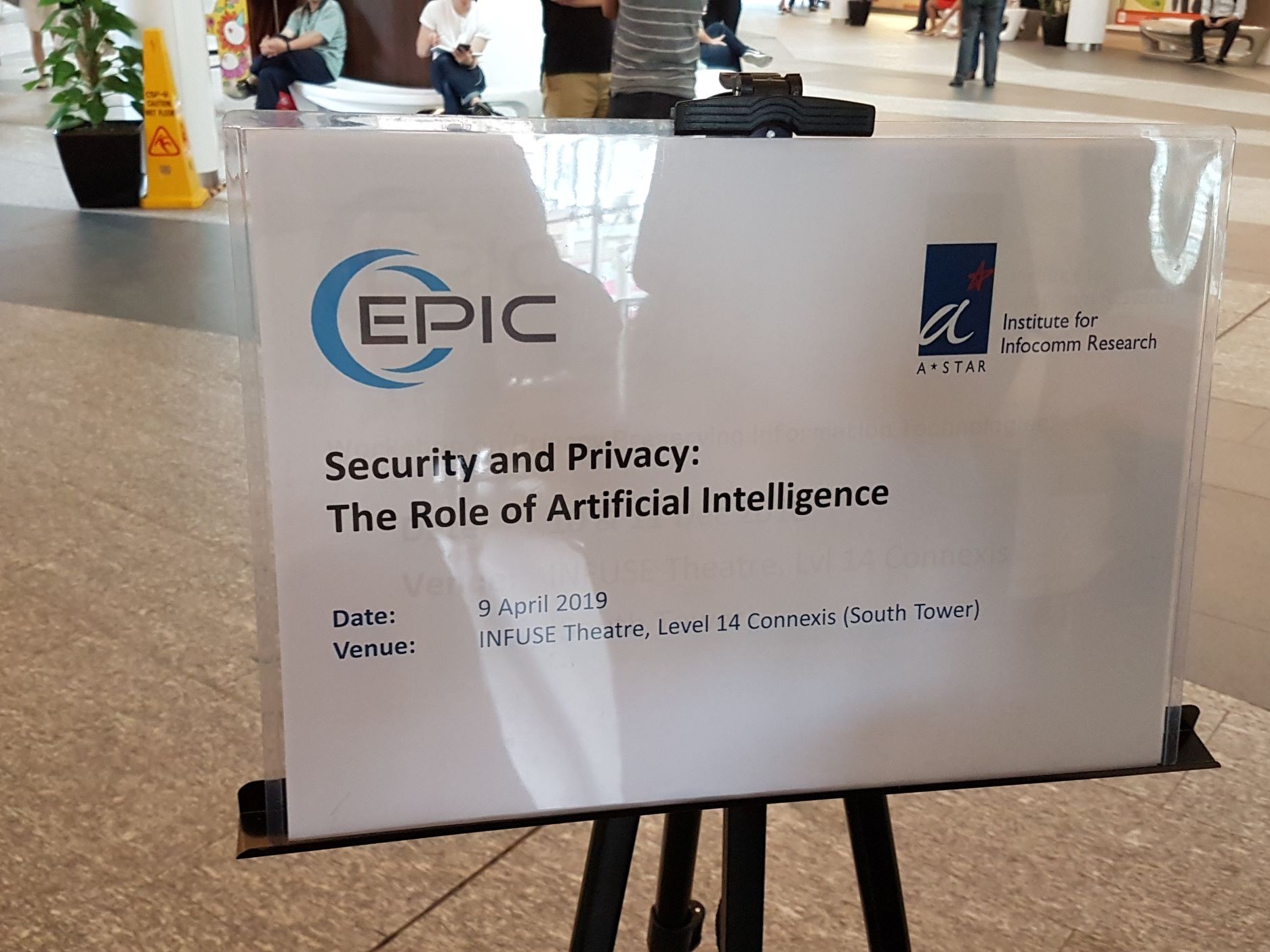EPIC Supported Security & Privacy – The Role of Artificial Intelligence Attracts International Roster of Expert Speakers & Sellout Crowd in Singapore

Tan Chee Seng, Director of I²R, Singapore’s largest ICT research institute, kicked off proceedings by welcoming the sellout crowd, which included EU and Singapore-based representatives from government, academia and business. The event was divided into two sessions and attracted an international roster of presenters, many of whom are trailblazers in the AI field. Session one focused on privacy and featured an opening speech by Dr Dan Bogdanov, head of the Privacy Technologies Department at Estonian startup Cybernetica. During his presentation, Bogdanov highlighted the breadth of choices to deal with privacy – from ignoring it, to not using personal data to new and sophisticated methods for harvesting personal data without revealing it. This was followed by a panel discussion, moderated by EPIC’s Erich Prem, in which discussants Tim Llewellynn, co-founder and CEO of Switzerland-based NVISO, Christopher Muffat, founder and CEO of Switzerland and Singapore-based Dathena Science, and Mitchell Bradley, head of business at Austria-based Mostly AI, in addition to Bogdanov, shared their thoughts and answered audience questions on new AI-based approaches to protecting privacy.
“Although data mining – and AI - are game changers and potential threats for personal data protection, there are new exciting possibilities for anonymization and synthetic data models using machine learning. It is important that more people understand that these technologies and how to use them,” says Mitchell Bradly from mostly.ai.
Session two focused more on the topic of security. Keynote Mike Anderson, CTO of DEX and founder of Ocean Protocol, emphasized value objectives and discussed at length the current lack of proper connection between data and AI. In addition to Anderson, a second moderated panel focusing on security and the important role of international collaboration was comprised of industry veteran and Chief Innovation and Trust Officer at Amaris.AI Professor Yu Chien Siang, Dr Martin Saerbeck, a senior technology consultant who leads the research and development initiatives for the strategic segments of smart sensor networks and robotics at TÜV SÜD Asia Pacific Digital Service, Mateusz Chrobok, CEO of Poland-based startup Digital Fingerprints, and Jason Gleason, founder and CEO of New Zealand-based Eightwire.
“Singapore is ideally located to mediate between the East and the West. It has also proven to be a place to test new technologies in an environment very different from Europe – be it differences in climate or in societal embedding of new IT,” said Prof. Yu Chien Siang.
“International collaboration is not just important to make best use of human capital from around the world. In areas such as privacy and security, international collaboration is a necessity – in technology development, but also in policy and regulation,” confirms Dr Erich Prem, CEO of eutema and project manager for the EPIC initiative.
EPIC, which concludes later this year, was initiated in 2017 and is aimed at improving cooperation in the area of information and communication technologies between Europe and the three partner countries Australia, New Zealand and Singapore. The project is funded by the EU’s Horizon 2020 Research and Innovation Programme (ICT) under Grant Agreement No. 687794. To learn more, visit www.epicproject.eu
Currently, EPIC is the only EU support action targeting ICT research cooperation with Australia, New Zealand and Singapore.


